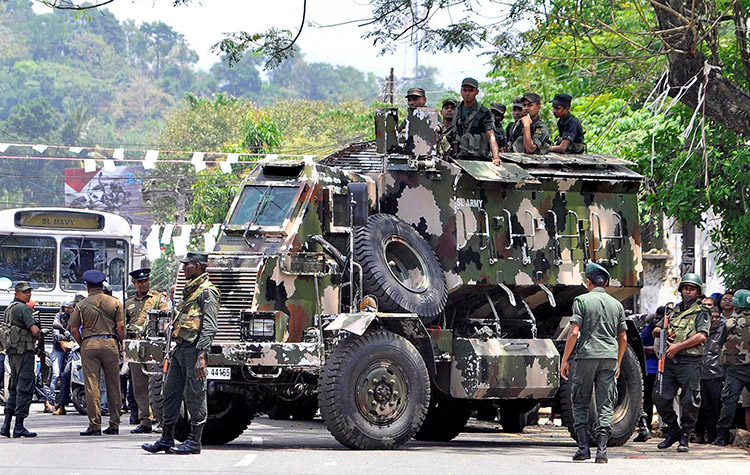(Kathmandu/Bangkok, 17 March 2018) – The Asian Forum for Human Rights and Development (FORUM-ASIA) calls on the Government of Sri Lanka to immediately lift the state of emergency. If it is still in force by 20th March, it will have to come before Parliament to decide on further extension. In this case, FORUM-ASIA calls on all political parties represented in Parliament and all Parliamentarians not to support an extension of regulations that confers enormous powers to state agencies with inadequate checks and balances, which curtails fundamental freedoms.
On 6 March 2018, Sri Lankan President, Maithripala Sirisena announced a nationwide state of emergency, though targeted violence towards the Muslim community had erupted only in some villages and towns in the Kandy district.[1] The emergency regulations was declared in a context where the Police and its Special Task Force (STF) had failed to enforce existing laws, including to stop mob violence during curfew hours.
Historically, emergency regulations in Sri Lanka has served as a license for arbitrary detention, torture, sexual violence and enforced disappearances. It is ironic that such regulations were introduced on the same day Parliament approved a law criminalising enforced disappearances, and as the Office of Missing Persons appears to be on verge of being operationalised.
The Government also blocked and restricted access and use of some social media platforms for around a week, restricting the right to information and freedom of expression and opinion.[2] This was done instead of using existing legal framework to hold identifiable individuals who had been propagating hate speech and provoking violence through social media to account. There are fears that there may be further restrictions on social media in the future.
FORUM-ASIA believes that the key to prevent future violence is to address the root causes of the attacks against minority communities that occur periodically in Sri Lanka, including under this Government. The lack of political will to implement a long-term peace and reconciliation effort over the last years and impunity for past violence is what has led to last week’s violence.
‘The Government of Sri Lanka should address the systemic and long-term human rights issues that have plagued communal harmony in Sri Lanka for decades. Continuing the state of emergency only further compromises civil liberties,’ says John Samuel, Executive Director of FORUM-ASIA.
FORUM-ASIA welcomes the belated arrest of several suspects and urges the Government of Sri Lanka to conduct independent investigation into the violence and to hold those responsible to account. The victims and their family members must be adequately compensated and all measures must be taken to prevent recurrence of similar events in the future. The Government is duty bound to protect the human rights of all groups and people to ensure that attacks against minorities before, during and after Sri Lanka’s long civil war do not return.
***
UPDATE: On 18 March, President Maithripala Sirisena announced via Twitter that the state of emergency had been lifted. ‘Upon assessing the public safety situation, I instructed to revoke the state of emergency,’ he said.
***
For a PDF version of this statement, please click here.
For further information, please contact:
– South Asia Programme, FORUM-ASIA, [email protected]
[1] https://www.reuters.com/article/us-sri-lanka-clashes/sri-lanka-declares-state-of-emergency-after-buddhist-muslim-clash-idUSKCN1GI0WG
[2] https://www.channelnewsasia.com/news/asiapacific/sri-lanka-blocks-facebook–social-media–amid-riots–10022844




